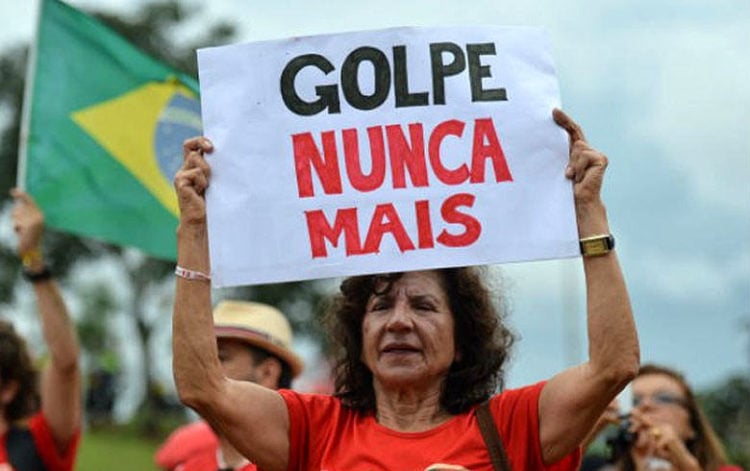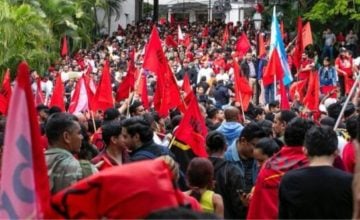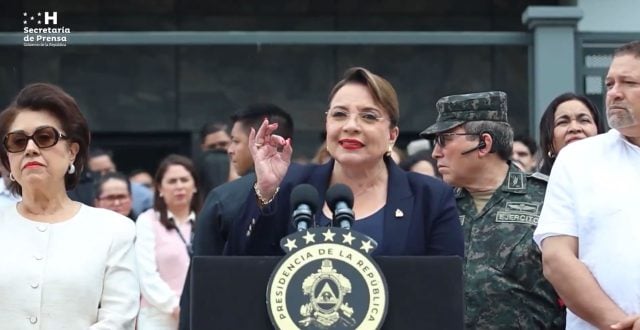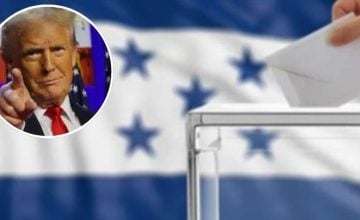By Luiza Calvette, Leonardo Nascimento, Gabriela de Fátima Cia, Ollivia Galdino and Leonardo Argollo.—
History has recorded an unprecedented moment: for the first time, a former president—Jair Bolsonaro—and high-ranking Armed Forces generals have been tried and convicted for attacking the democratic rule of law.
This milestone does not stand alone; it fits within Latin America’s long and tragic tradition of institutional instability, where coups d’état have been repeatedly used by ruling elites to halt popular progress and serve the interests of foreign powers.
From Brazil’s 1964 coup to Chile in 1973, from Guatemala to the dictatorships of the Southern Cone, our peoples have faced a succession of authoritarian ruptures designed to interrupt national development and pave the way for surrendering sovereignty.
Bolsonaro’s conviction breaks with a tradition of impunity
The conviction for attempting a coup—handed down by a civil court—sets a landmark for Brazil and for our still fragile democracy. At a time when authoritarian leaders and rhetoric worldwide continue to inflame attacks on institutions, Brazil has taken the opposite path, affirming that the popular will must prevail.
Since the First Republic, the Armed Forces often assumed the role of a “moderating power,” intervening repeatedly in political life. That perspective crystallized in 1964 and left deep marks on Brazilian society.
With the sweeping amnesty for agents of the dictatorship, a logic of impunity took hold that felt permanent. Holding senior authorities accountable for the attack now shows institutions are growing stronger and that the country is moving toward a more stable political practice grounded in respect for popular sovereignty and the rule of law.
U.S. interference in Latin America
U.S. interference in Latin America has been a constant since the end of colonial rule—a harsh reality for nations subjected to external domination, where the yoke of one empire was replaced by another.
American imperialism has long shown a particular appetite for Latin America; after all, we share the same hemisphere and, in Mexico’s case, a border.
Colonizers turned the Americas into an extension of Europe, a pattern later reproduced by the United States. Imperial expansion unfolded across economic, ideological, cultural, and social dimensions. Colonies were pushed through a process of Westernization that molded political, intellectual, and artistic elites to imported standards. Ruling classes remained bound to this dependency to safeguard their privileges.
Classic examples include the Platt Amendment and the Monroe Doctrine, which cemented the ambition to treat Latin America as a strategic backyard. For generations, we lived under governments subservient to U.S. interests, handing over national wealth to secure foreign capital’s profits.
Political interference has been constant—via explicit support from U.S. embassies, financing for politicians aligned with an agenda of economic exploitation and control over natural resources and markets, and training for local armed forces.
Even centuries after those doctrines were conceived, imperialism remains alive in our region. In the 20th century and into the present, the United States has played a leading role—backing military coups in the past and, more recently, parliamentary and judicial offensives.
In Brazil, both in 1964 and in 2016, U.S. support was part of the plot to upend democracy. For Latin Americans, the word “coup” evokes bitter memories: dark times never fully redressed, crimes untried, and the disappeared denied justice. In Brazil, the military remain unpunished for torture and killings.
Bolsonarism, imperial power, and the far right move in lockstep
It is therefore no surprise that the United States sympathized with the Bolsonaro camp’s attempted coup—among the starkest displays of subservience in our history. Once again, imperial ambition, putschism, and the far right marched together.
Bolsonaro’s conviction for attacking the democratic state—after due process and a full right to defense once denied by past dictatorships—is a historic milestone for the region in two ways. First, it reaffirms that we have reclaimed democracy, however imperfect, guaranteeing people’s right to exist and to engage in political expression.
For decades, the fight for a just nation was violently silenced; today, the punishment of an attempted coup offers a symbolic response to the many institutional ruptures imposed on the continent. That the ruling came on September 11—the date of the 1973 coup against Salvador Allende in Chile—signals a symbolic break: half a century later, it was not a democratic president toppled by imperial intervention, but a coup-plotter lawfully condemned with all rights respected.
Second, it represents a rejection of the far right’s rise across Latin America. The ruling shows that, despite advances by putschist forces and Brazil’s far right—from the coups in Bolivia and Peru to destructive governments in Ecuador and Argentina—our societies can push back.
This decision reverberates beyond Brazil’s borders: it strengthens democratic sectors across Latin America, inspires popular movements, and demonstrates we are not fated to endlessly repeat the cycle of coups, authoritarianism, and capitulation. Democratic and popular forces are organized to resist—and to move forward.
Brazil and popular resistance to the far right
We have judged Bolsonaro. The streets have shown we are organized to confront the far right. Here—where exploitation bites hardest, where democracies can collapse in seconds, and where coups become laboratories for authoritarian experiments—we have shown there is dignity. We have made clear that our democracy must advance, not backslide. And we know this much: what happens in Brazil reverberates across Latin America, because our peoples share destinies and struggles.
Bolsonarism embodied an explicit project of subordination to the geopolitical interests of Western core powers, breaking with Brazil’s tradition of autonomy and a multipolar foreign policy. That unconditional alignment translated into support for sanctions on neighboring nations, abandonment of South–South cooperation forums, and the strategic weakening of regional integration mechanisms.
The result was a deliberately isolated Brazil, one that surrendered its capacity for international mediation and its natural calling to lead among the peoples of the Global South. This case shows that robust democratic institutions can serve as effective bulwarks against geopolitically driven destabilization.
The legal and political defeat of that project sends a crucial message to countries of the South: it is possible to contain the authoritarian wave and reject strategic dependence. By curbing Bolsonarism, Brazil reopens the door to resume its role as a builder of a new geometry of global power rooted in sovereignty and horizontal cooperation.
The message is clear: the Global South is not condemned to submission. With its economic weight, territory, and diplomacy, Brazil once again becomes a protagonist in shaping a multipolar future on the basis of its own sovereign choices.
Today, as we see Bolsonaro and his accomplices convicted by Brazil’s judiciary, we celebrate not only a court decision, but the first time we squarely confront our own history.
By Luiza Calvette, Leonardo Nascimento, Gabriela de Fátima Cia, Ollivia Galdino and Leonardo Argollo / Column Café com Vodka, Diálogos do Sul Global

El Ciudadano









